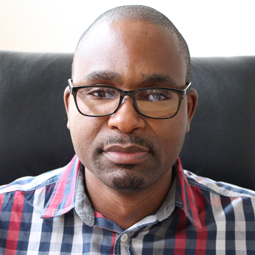CSIR Cybersecurity researchers urge parents to protect youth from cyberbullying
Cybersecurity experts from the Council for Scientific and Industrial Research (CSIR) have urged the adult community to play an active role in protecting young people from cyberbullying, as part of minimising the scourge in society.
The researchers were briefing the media today on the negative effects of cyberbullying, and providing some solutions to the problem, which takes place through online communication platforms.
Cybersecurity experts from the Council for Scientific and Industrial Research (CSIR) have urged the adult community to play an active role in protecting young people from cyberbullying, as part of minimising the scourge in society.
The researchers were briefing the media today on the negative effects of cyberbullying, and providing some solutions to the problem, which takes place through online communication platforms.
The virtual briefing formed part of the CSIR’s cybersecurity awareness programme, which aims to educate and sensitise the public about cyber-related crimes and highlight steps that people can take to ensure that they do not become victims of cyberbullying.
Speaking at the briefing, CSIR senior researcher Sipho Ngobeni said many people still do not see the harm associated with cyberbullying. He cited recent incidents such as that of 14-year-old Lufuno Mavhunga, who committed suicide, allegedly after a video of her being grievously assaulted went viral.
Singing sensations from KwaZulu-Natal, Viggy and Virginia Qwabe, continuously face a barrage of cyberbullying. They are often labelled as ugly and memes are created using their photos. Recently, someone published old pictures from when they first appeared on Idols SA, and compared them to how they look now. The side-by-side pictures, were captioned “Money has power to change everyone”, went viral on WhatsApp, among other social media platforms.
Ngobeni said getting everyone involved – youth, parents, educators, counsellors, youth leaders, law enforcement, social media companies, and the community – is the key to dealing with this problem, adding that parents are often oblivious to their children’s behaviour online.
“In addition, educators do not know when and how to intervene in online behaviours that occur away from school, but still involve their learners. Law enforcement is often also hesitant to get involved, unless there is clear evidence,” he said.
According to the research shared with the media, Instagram accounts for 42% of bullying that occurs online, while Facebook accounts for 37%, 31% occurs on Snapchat, 12% on WhatsApp, 10% on YouTube and 9% on Twitter.
Statistics show that about 41% of kids develop social anxiety after being bullied, 37% develop depression, 26% have suicidal thoughts, 25% engage in self-harm, 24% stop using social media altogether, 20% start skipping classes, 14% develop eating disorder while 9% begin to abuse alcohol and drugs.
Another expert, Rofhiwa Netshiya said there is a need for public education about all forms of cyberbullying. “We need to educate children that all forms of cyberbullying are wrong and can lead to serious discipline.”
Netshiya advised parents to install Internet monitoring software on their children’s computers to be able to track their activities on social media. “There are low-cost products that can invisibly monitor the activities of your kids, and privately email you the results as often as you like. These are very important to track Internet sites visited, downloads, chat room conversations and instant messaging.”
Parents are also advised to reinforce positive morals and values, and educate their children about appropriate online behaviour, such as the use of account privacy settings, reporting the matter to the police and providing unconditional support to their children should they experience cyberbullying.
Issued by the CSIR Strategic Communication unit
Enquiries:
David Mandaha: CSIR Media Relations Manager
Tel: 012 841 3654
Mobile: 072 126 8910
Email: dmandaha@csir.co.za
About the CSIR:
The CSIR, an entity of the Ministry of Higher Education, Science and Innovation, is one of the leading scientific and technology research, development and implementation organisations in Africa. Constituted by an Act of Parliament in 1945 as a science council, the CSIR undertakes directed and multidisciplinary research and technological innovation, as well as industrial and scientific development to improve the quality of life of all South Africans. For more information, visit www.csir.co.za
Follow us on social media:
Twitter: @CSIR. Facebook: CSIRSouthAfrica. Instagram: CSIRSouthAfrica. LinkedIn: Council for Scientific and Industrial Research (CSIR). Youtube: CSIRNewMedia


